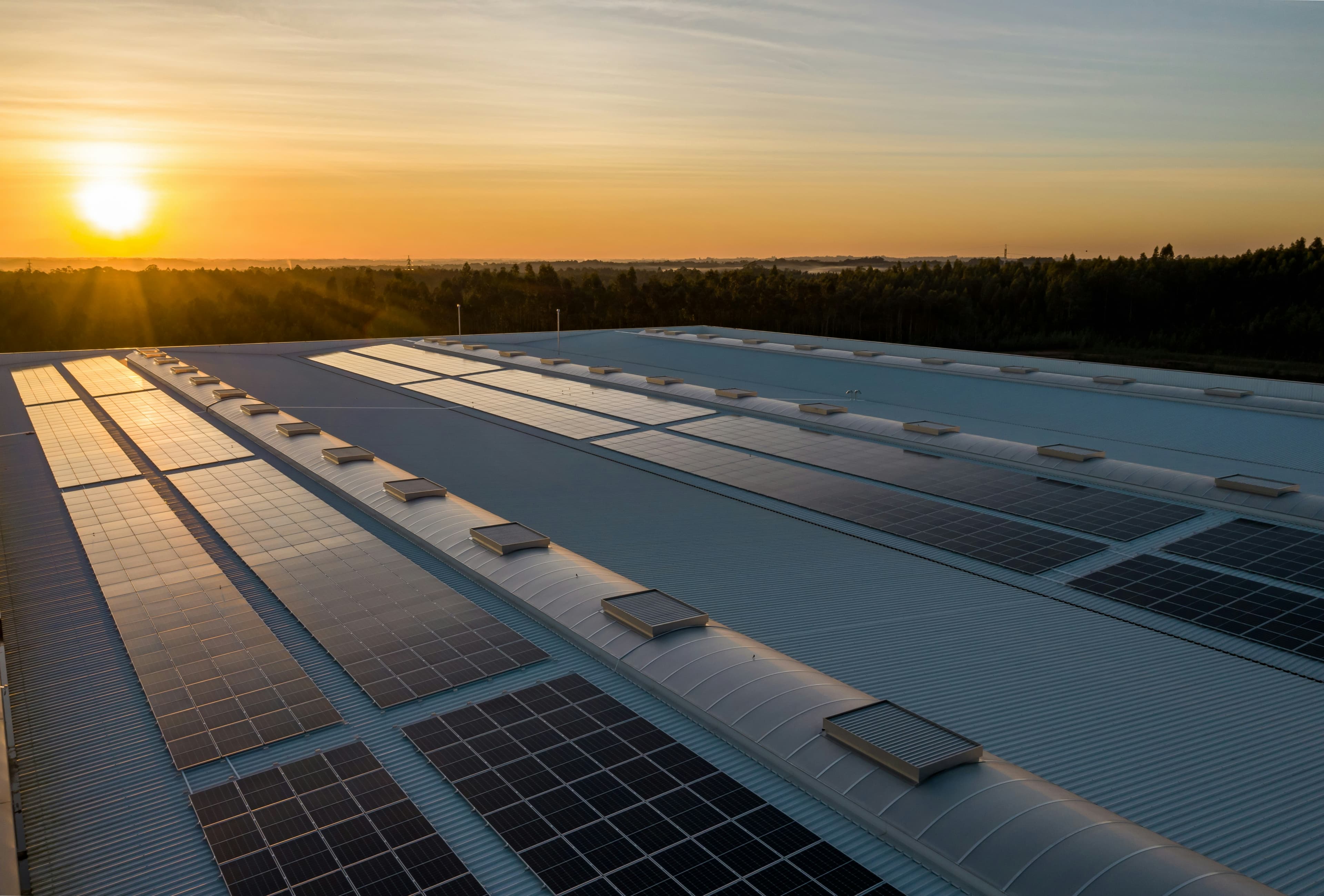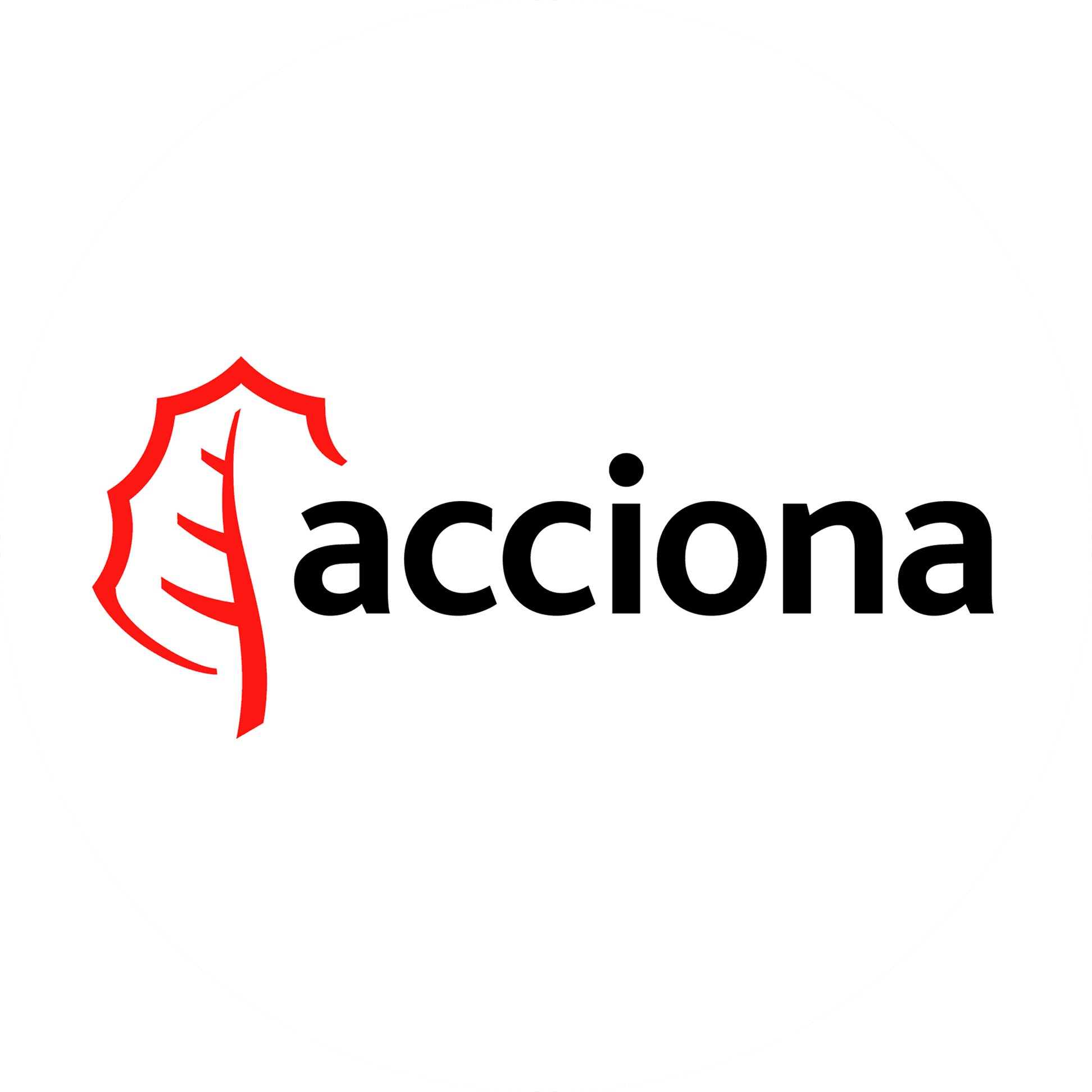
Decarbonize energy with solar, storage, and electrification
 ACCIONA
ACCIONA总结
Phased decarbonization initiative at Urzut base combining solar, storage, and electrification to cut emissions, reduce energy costs, and ensure energy security.
Context
Mostostal Warszawa operates in Poland, where electricity remains one of the most carbon-intensive and costly in the EU. In 2024, more than 50% of the national energy mix relied on coal, with renewables contributing under one-third. Due to various geopolitical factors and externalities impacting Europe, coal imports from the East collapsed, causing a 70–100% rise in wholesale electricity prices between 2022–2024, reaching over PLN 550/MWh.
For a company with energy-intensive construction and transport operations, this volatility represented both a financial and strategic risk. To address these challenges, Mostostal developed a phased decarbonization roadmap at its Equipment and Transport Base in Urzut near Warsaw. Co-financed 50% by the Acciona Decarbonization Fund, the initiative was designed to progressively expand renewable energy production, integrate storage, and prepare for full electrification of heating and mobility.
Region: Mazovia
City: Warsaw (Urzut)
Country: Poland
Solution
The Renewable Energy Sources initiative at the Equipment and Transport Base in Urzut is a multi-phase program designed to reduce energy costs, lower emissions, and strengthen energy security for Mostostal Warszawa in Poland’s challenging energy market.
Poland remains one of the EU’s most coal-dependent economies, with more than half of electricity production coming from coal and lignite. Combined with the war-driven energy crisis and volatile fossil fuel imports from the East, this context has made the pursuit of energy independence both an environmental responsibility and a business necessity.
To address this challenge, Mostostal Warsawa, ACCIONA’s subsidiary in Poland designed a stepwise decarbonization strategy co-financed by the Acciona Decarbonisation Fund. The program integrates renewable generation, energy storage, and electrification to progressively cut Scope 1 and 2 emissions, while enabling the facility to be powered by renewable energy from its own photovoltaic plant and reduce exposure to volatile energy prices.
The shared goal is to secure reliable, low-carbon energy for operations while demonstrating a scalable model that can be applied across other facilities and construction sites. Since 2023, the company has implemented three successive phases: first by installing photovoltaic generation, then in 2024 expanding capacity and adding mobile units, and finally introducing storage to maximize renewable use. Each step was designed to build resilience, reduce fossil fuel dependency, and create a foundation for full electrification of heating and transport in the next stage.
By 2025, the initiative will have created an integrated local energy system that not only reduces emissions but also ensures operational continuity in the face of market and geopolitical instability. This program shows how combining renewable energy with storage and electrification can deliver measurable environmental, social, and business value, even in one of the EU’s most carbon-intensive markets.
Impact
Sustainability impact
Climate
2023: 49.99 kWp PV avoided ~21 tCO₂e/year (Scope 2) for Mostostal Warszawa.
2024: Expanded 149.48 kWp PV + mobile PV avoided ~78 tCO₂e/year. (Scope 2)
2025: 140 kWh storage enabled higher self-consumption, avoiding curtailment and displacing additional coal-based electricity. (Scope 2)
Nature
2023: Reduced coal-based electricity demand, lowering air pollutants such as SO₂ and particulate matter.
2024: Additional renewable displacement increased avoided environmental damage from lignite combustion.
2025: Storage prevented renewable waste, ensuring all clean energy generated was used.
Social
2023: Greater predictability in energy costs amid national crisis improved workforce stability.
2024: Mobile PV units increased resilience for temporary and construction sites, supporting community continuity.
2025: Energy independence secures stable operations, supporting workforce and community continuity.
Business impact
Benefits
The Mostostal Warszawa Renewable Energy Initiative at the Urzut Base demonstrates a progressive approach to reducing energy costs, lowering emissions, and strengthening operational resilience in Poland’s challenging energy market. By integrating photovoltaic generation, mobile units, and energy storage, the project showcases a scalable model for achieving energy independence and promoting renewable energy adoption within industrial operations.
In 2023, the initiative delivered greater predictability in energy costs amid the national energy crisis, improving workforce stability through the installation of a 49.99 kWp photovoltaic system co-financed by the Acciona Decarbonization Fund, achieving 21 tCO₂e of emissions reductions per year.
In 2024, resilience was further enhanced with the expansion of PV capacity to 149.48 kWp and the addition of two mobile PV units of 14.94 kWp each, supporting continuity at temporary and construction sites and reducing emissions by 78 tCO₂e.
By 2025, the launch of a 140-kWh energy storage system will maximize the use of renewable energy from the PV installations, securing energy independence for the base, strengthening resilience to coal supply disruptions, and delivering an expected annual CO₂ reduction of 21 tCO₂e, with a total projected reduction of 210 tCO₂e over ten years. The renewable energy share at the base will increase significantly, while operational continuity and cost stability are further reinforced.
Costs
Total 2023–2025: EUR 172,683, with 50% financed by the company and 50% by the Fund.
2023 (Phase I): EUR 48,100 (PV system).
2024 (Phase II): EUR 77,682 (PV expansion + 2 mobile PV units).
2025 (Phase III): EUR 46,901 (140 kWh storage).
Notes: Costs do not include future increases in electricity prices (forecasted to remain dynamic) or inflation (currently 2.8% in Poland). These external factors are expected to make the IRR more attractive than current estimates.
Implementation
Typical business profile
Relevant Sectors: Renewable energy, infrastructure, engineering, construction.
Business Functions: Project development, operations, maintenance, sustainability, community relations.
Maturity in Net Zero/Nature Positive Journey: Suitable for companies with experience in large-scale renewable energy projects and a commitment to sustainability.
Geographical Relevance: Applicable to regions with favorable wind conditions and a commitment to reducing carbon emissions.
Approach
Equipment purchase and installation of the 140 kWh battery.
Integration with existing photovoltaic system in Urzut.
Commissioning and monitoring of storage capacity.
Assessment of additional electrification measures (diesel boiler replacement).
Stakeholders involved
Project Leads: ACCIONA Construction, Mostostal.
Company Functions: Engineering, sustainability, operations.
Main Providers: Battery equipment supplier and solar photovoltaic
Others: Local operations and maintenance teams.
Key parameters to consider
Technology maturity: Proven (PV, storage, heat pumps, EVs).
Timeline: 2023–2025 (ongoing).
Lifetime: PV and storage ~15–20 years.
Region: Poland, coal-dependent grid amplifies benefits.
Financing: 50% co-financed by Decarbonization Fund.
Implementation and operations tips
As a result of the 2023–2025 projects, the Urzut Base now produces and stores surplus green electricity from photovoltaic installations. In 2026, the initiative will maximize this renewable energy by replacing natural gas for heating and gasoline/diesel for vehicles.
Project elements:
Heat pump (Scope 1): Reduces natural gas consumption; gas-fired boilers used only at peak winter demand.
Automatic gates and air curtains (Scope 2): Minimize heat loss.
Electric vehicles (Scope 1): Two Acciona Silence cars and one electric van (or one B-class electric car if Silence vehicles are unavailable in Poland).
Key benefits:
Modular, scalable, and replicable for other sites and offices.
Ensures full independence from external energy sources, important in regions with volatile energy supply and prices.
Proposed co-financing: 50% Mostostal Warszawa, 50% Acciona Decarbonization Fund.
Going further
External links